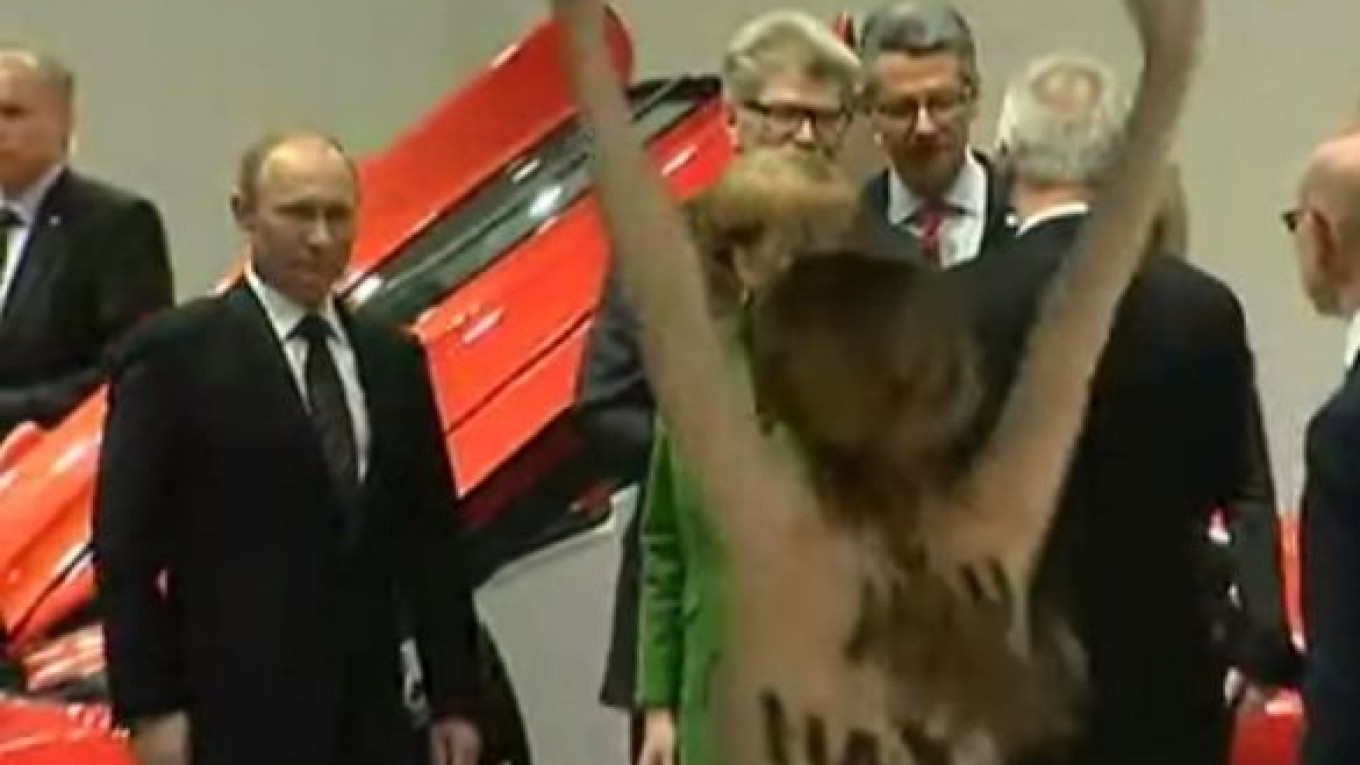Warning 18+: This video of Femen protesters greeting President Vladimir Putin during his visit to Germany contains nudity and written profanity.
Up to several hundred protesters, including three bare-breasted women, greeted President Vladimir Putin at the start of his two-day visit to Germany on Monday, when he also met with Chancellor Angela Merkel and participated in the opening of the Hanover Messe industrial trade show.
The crowd of protesters, which media variously estimated at between several dozen and several hundred people, harangued Putin over Pussy Riot's jailing, restrictions on gays, and the unsolved killings of journalists, as well as the Kremlin's tacit support of Syrian President Bashar Assad.
But the most eye-catching protest involved three topless protesters from the radical feminist group Femen, one of whom got within arms-length of Putin and Merkel, startling the German leader, while an apparently unfazed Putin gave the woman a "two thumbs up" gesture.
"I liked the stunt," he later told reporters. Putin said he didn't hear what the women said and suggested that bodyguards, who whisked them away, could have been "a bit gentler." "I didn't even see if they were blondes or brunettes or dark-haired," he said, Kommersant reported.
A Kommersant reporter at the scene offered a different account. "They heard and saw everything," Oleg Zinkovsky told Kommersant-FM radio. Photographs show that the women had "[expletive] dictator" written in Russian and English on their torsos.
The street protesters, too, apparently failed to get their message across. Putin spokesman Dmitry Peskov dismissed the demonstrations as a "normal tradition in Germany" and said the Russian delegation had not even seen them, Itar-Tass reported.
Femen's stunt was "ordinary hooliganism," and participants should be punished, he told Reuters.
Related articles:
A Message from The Moscow Times:
Dear readers,
We are facing unprecedented challenges. Russia's Prosecutor General's Office has designated The Moscow Times as an "undesirable" organization, criminalizing our work and putting our staff at risk of prosecution. This follows our earlier unjust labeling as a "foreign agent."
These actions are direct attempts to silence independent journalism in Russia. The authorities claim our work "discredits the decisions of the Russian leadership." We see things differently: we strive to provide accurate, unbiased reporting on Russia.
We, the journalists of The Moscow Times, refuse to be silenced. But to continue our work, we need your help.
Your support, no matter how small, makes a world of difference. If you can, please support us monthly starting from just $2. It's quick to set up, and every contribution makes a significant impact.
By supporting The Moscow Times, you're defending open, independent journalism in the face of repression. Thank you for standing with us.
Remind me later.






